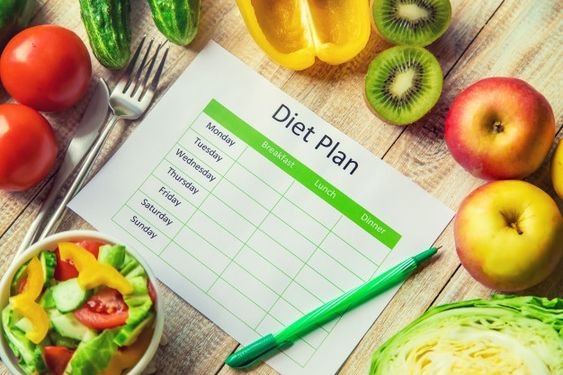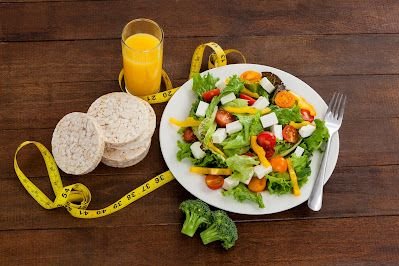
5 Proven Weight Loss Diet Plans That Actually Work
Losing weight effectively starts with a caloric deficit—burning more calories than you consume. To support this, prioritize nutrient-dense foods like fruits, vegetables, lean proteins, whole grains, and healthy fats. Include fiber-rich foods for better digestion and hunger control, and opt for lean proteins like fish, poultry, legumes, and tofu to preserve muscle and promote fullness.
Healthy fats from sources like avocados, nuts, and olive oil keep you satisfied without adding excessive calories. Stay hydrated, control portions, and avoid processed, sugary foods that lead to cravings and crashes. Regular physical activity enhances calorie burn, muscle maintenance, and motivation.
Most importantly, every body is different. These 5 Proven Weight Loss Diet Plans That Actually Work should be adapted to your personal health needs. Consulting a healthcare provider or dietitian ensures your plan is safe and sustainable.
Caloric Deficit
Weight loss is most effectively achieved through a caloric deficit—consuming fewer calories than your body needs. This creates an energy imbalance, prompting the body to burn stored fat for fuel. Calories, the basic unit of energy from food, fuel every bodily function. When intake exceeds energy expenditure, the surplus is stored as fat. When intake is reduced, the body uses fat stores, resulting in weight loss.
Creating a sustainable caloric deficit is key. Extreme calorie cuts can lead to nutrient deficiencies, muscle loss, and fatigue. Instead, moderate reductions combined with regular exercise—lead to healthy, long-term success. Tools like calorie tracking apps and portion control help monitor intake, while exercise boosts calorie burn. This principle is central to all 5 Proven Weight Loss Diet Plans That Actually Work from low-carb approaches to intermittent fasting.
In conclusion, understanding and applying a safe caloric deficit is essential for effective weight management. The goal is consistency, balance, and choosing the plan that suits your lifestyle.

Portion Control
Portion control is a powerful dietary strategy focused on managing how much food you consume during meals and snacks. Rather than obsessing over calories or food types, it emphasizes eating the right quantity to support a balanced, healthy lifestyle. This practice is essential for weight management. Overeating, especially in environments with oversized servings, often leads to excess calorie intake and weight gain. Portion control helps combat this by teaching individuals to recognize proper serving sizes without the stress of strict calorie counting.
Mindful eating is a key part of portion control—listening to your body’s hunger and fullness signals, using smaller plates to avoid overeating, and stopping when you’re satisfied. This approach supports sustainable habits that can be maintained long term. Including a variety of macronutrients and micronutrients in controlled portions ensures nutritional balance without overindulgence. It also allows flexibility, especially in social settings like dining out, where being mindful of portion sizes leads to better choices.
Portion control is one of the 5 Proven Weight Loss Diet Plans That Actually Work because it focuses on long-term behavior change rather than restrictive dieting.

Meal Timing
Meal timing refers to when you eat your meals throughout the day and plays a critical role in managing metabolism, energy, and overall health. Aligned properly, it becomes a powerful tool in effective weight loss strategies.
Our bodies follow a natural circadian rhythm—a 24-hour cycle that influences metabolism and hormone release. Eating in sync with this rhythm, especially by having meals earlier in the day, may boost nutrient absorption and fat burning.
-
Breakfast jumpstarts your metabolism after fasting overnight. A healthy morning meal replenishes glycogen stores and energizes your body for the day ahead.
-
Lunch provides a midday energy boost. A balanced plate with carbs, proteins, and healthy fats supports cognitive function and prevents afternoon slumps.
-
Healthy snacks like fruits, nuts, or yogurt help manage blood sugar and curb overeating during main meals.
-
Dinner should ideally be lighter and consumed at least a few hours before bed. A balanced evening meal supports digestion and avoids late-night overeating.
Incorporating mindful meal timing into your routine is one of the 5 Proven Weight Loss Diet Plans That Actually Work, helping regulate hunger, balance hormones, and promote sustainable weight management.
Mindful Eating
Mindful eating is a powerful practice featured in many of the 5 Proven Weight Loss Diet Plans That Actually Work. It involves fully focusing on the eating experience—appreciating the look, smell, texture, and taste of every bite. Instead of rushing through meals, mindful eaters savor their food, promoting satisfaction with less.
This approach also helps identify emotional or unconscious eating patterns. By staying present and non-judgmental, individuals can foster a healthier relationship with food. Mindful eating doesn’t just support weight loss—it enhances appreciation, reduces overeating, and builds lasting habits. Incorporating mindful eating into your diet encourages greater control, balance, and joy—all essential elements in sustainable weight loss.

Physical Activity
A holistic approach to wellness blends a nourishing diet with regular physical activity, creating harmony between nutrition and movement. It’s not just about eating well or working out—it’s about syncing both for optimal health.
Focus on whole foods: colorful fruits and veggies, whole grains, lean proteins, and healthy fats. Stay hydrated to support every function in your body. Complement your diet with physical activity: cardio for heart health, strength training for muscle support, and flexibility exercises like yoga to prevent injury. The synergy between diet and exercise is key. Proper nutrition fuels your workouts, while exercise enhances nutrient absorption and metabolism. Together, they promote balance, resilience, and long-term well-being.
This integrated lifestyle fosters sustainable habits, making health a natural part of your everyday routine. Embrace it as a path to vitality—not perfection.

Conclusion
Embracing a holistic approach to well-being means recognizing that true health comes from the balance between nourishing your body and staying physically active. By integrating mindful eating with consistent exercise, you create a sustainable lifestyle that supports both physical vitality and mental clarity. This synergy not only enhances your overall wellness but also empowers you to live a more energized, balanced, and fulfilling life.
FAQs
If you have questions about our 5 Proven Weight Loss Diet Plans That Actually Work , feel free to ask!
